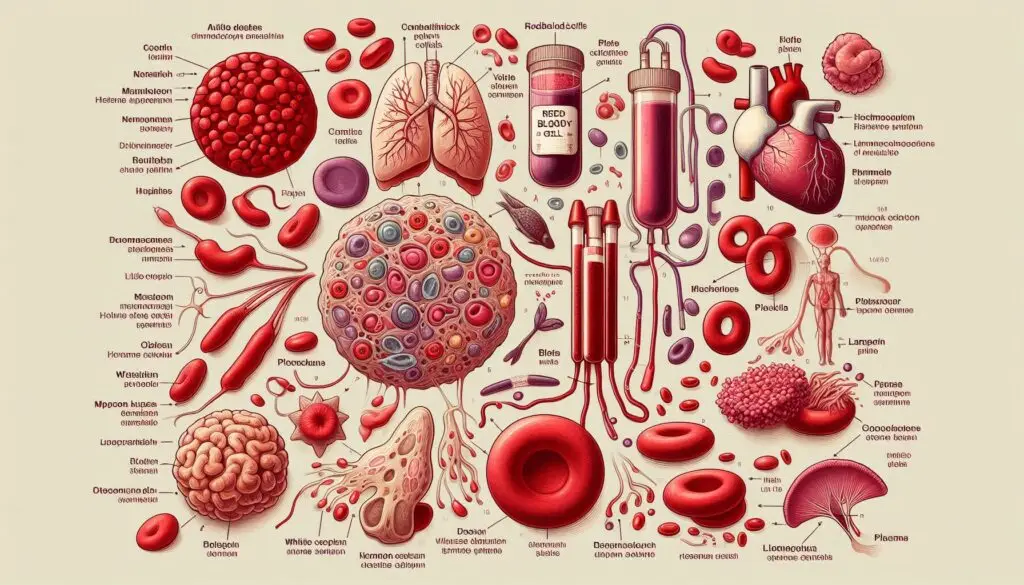Vitamin B6 Deficiency: Symptoms, Causes, and Solutions

Vitamin B6, also known as pyridoxine, is a vital nutrient that plays numerous roles in the body. It is crucial for various metabolic processes, including amino acid metabolism and neurotransmitter synthesis. Despite its importance, many people may not get enough of this essential vitamin. This article delves into the functions of Vitamin B6, the symptoms of its deficiency, potential causes, and how to ensure adequate intake.
What is Vitamin B6?
Vitamin B6 is a water-soluble vitamin found in many foods. It exists in several forms, with pyridoxal phosphate being the most active form. This vitamin is essential for over 100 enzymatic reactions in the body. These reactions are critical for maintaining good health.
Functions of Vitamin B6
- Metabolism: Vitamin B6 plays a significant role in the metabolism of proteins and carbohydrates. It helps convert food into energy.
- Neurotransmitter Synthesis: This vitamin aids in producing neurotransmitters like serotonin and dopamine, which are vital for mood regulation.
- Immune Function: It supports the immune system by helping produce antibodies that fight infections.
- Hemoglobin Production: Vitamin B6 is necessary for hemoglobin formation, which carries oxygen in red blood cells.
Symptoms of Vitamin B6 Deficiency
A deficiency in Vitamin B6 can lead to various symptoms that affect different body systems. Here are some common signs:
Neurological Symptoms
- Peripheral Neuropathy: Tingling or numbness in hands and feet is common.
- Seizures: In severe cases, especially in infants, seizures may occur.
- Mood Changes: Deficiency can lead to irritability, anxiety, and depression.
Dermatological Symptoms
- Skin Rashes: A scaly rash around the mouth, nose, and eyes may develop.
- Glossitis: Inflammation of the tongue can cause soreness and swelling.
- Cheilosis: Cracks at the corners of the mouth may appear.
Hematological Symptoms
- Anemia: A lack of hemoglobin can lead to fatigue and weakness due to insufficient oxygen transport.
Gastrointestinal Symptoms
- Stomatitis: Inflammation of the mouth can cause pain during eating or speaking.
Causes of Vitamin B6 Deficiency
While dietary deficiency is rare due to the wide availability of foods containing Vitamin B6, several factors can contribute to its insufficiency:
- Malabsorption Syndromes: Conditions such as celiac disease or Crohn’s disease can hinder absorption.
- Certain Medications: Some drugs can interfere with Vitamin B6 metabolism.
- Alcoholism: Excessive alcohol consumption can deplete Vitamin B6 levels.
- Increased Demand: Pregnancy or certain illnesses may increase the body’s need for this vitamin.
How to Prevent Vitamin B6 Deficiency
Ensuring adequate intake of Vitamin B6 is crucial for maintaining overall health. Here are some dietary sources rich in this vitamin:
Food Sources
- Meat and Poultry: Chicken breast and turkey are excellent sources.
- Fish: Salmon and tuna provide significant amounts.
- Nuts and Seeds: Sunflower seeds and pistachios are great options.
- Legumes: Chickpeas and lentils offer good levels of Vitamin B6.
- Fruits and Vegetables: Bananas, avocados, and potatoes are beneficial.
Dietary Recommendations
The recommended daily allowance (RDA) for Vitamin B6 varies by age and gender:
- Adult men: 1.3 mg
- Adult women: 1.3 mg
- Pregnant women: 1.9 mg
- Breastfeeding women: 2.0 mg
Diagnosis of Vitamin B6 Deficiency
If you suspect a deficiency, consult a healthcare provider for evaluation. Diagnosis typically involves:
- Reviewing symptoms
- Assessing dietary intake
- Conducting blood tests to measure levels of pyridoxal phosphate.
Treatment Options
If diagnosed with a deficiency, treatment usually includes dietary changes or supplementation:
- Dietary Changes: Increasing intake of foods rich in Vitamin B6.
- Supplements: Oral supplements may be recommended if dietary changes are insufficient.
Conclusion
Vitamin B6 is crucial for many bodily functions, from metabolism to immune support. Recognizing the symptoms of deficiency early can prevent complications and promote better health outcomes. By ensuring adequate intake through a balanced diet or supplements when necessary, individuals can maintain optimal levels of this essential nutrient.






Responses